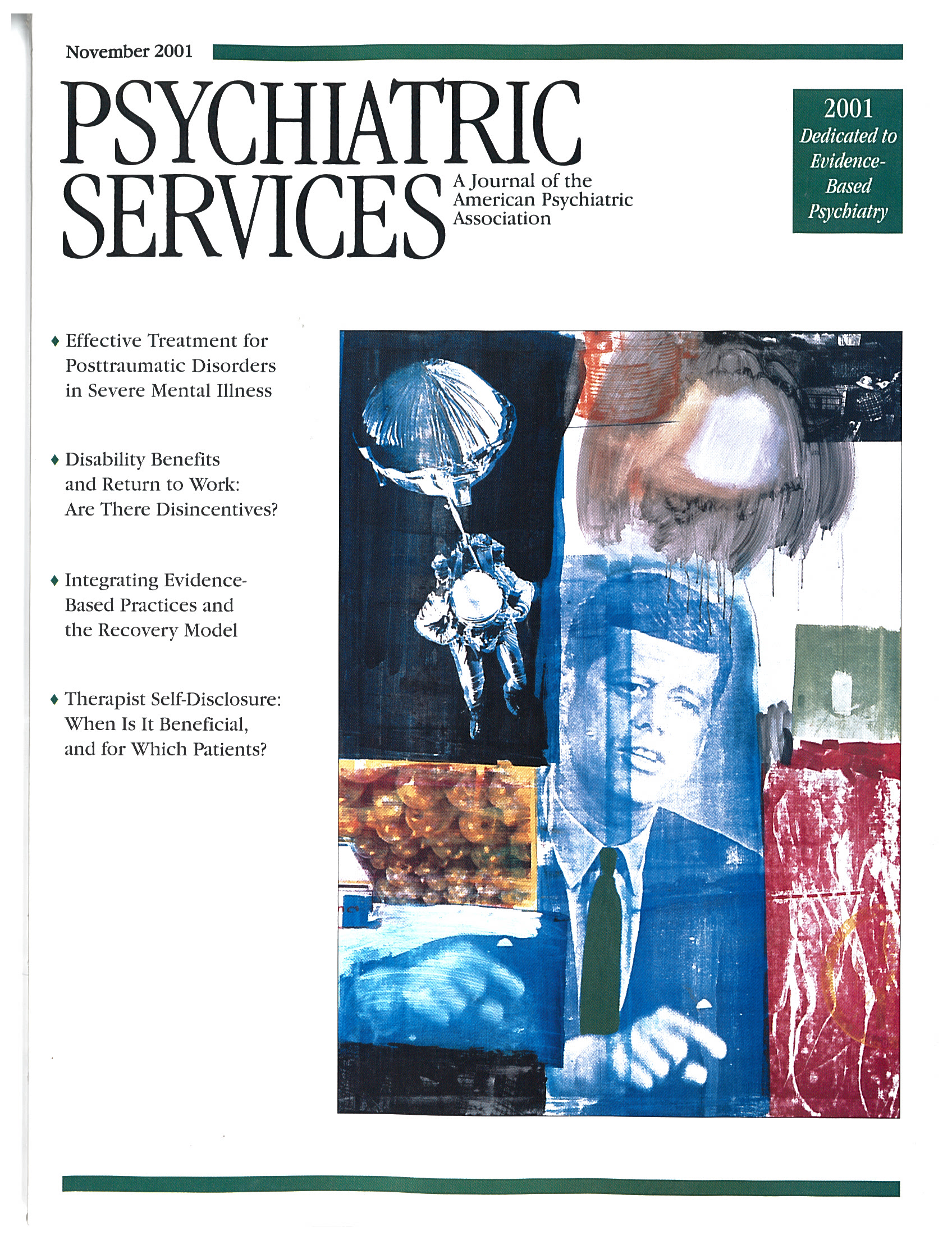The article by Drew and his colleagues in this issue of Psychiatric Services (page 1479) reinforces the importance of patients' returning to work after they experience the trauma that accompanies major mental illness. Unnecessary delay is counterproductive for our patients as well as for society.
Trauma may occur when there is a betrayal of trust in the physician-patient relationship in the course of a major medical or mental illness, or it may be related to combat, criminal victimization, or horrendous events such as the terrorist attacks of September 11. Although there are important differences between responses to individual and mass trauma, whatever the source of trauma, recovery from the impairment that is often associated with traumatic experiences is facilitated by appropriate mental health care combined with a quick return to an appropriate level of duty or work. Delay in the provision or availability of care and a lack of support and incentives for an early return to work are a prescription for enabling chronic work-related impairment and disability. Early return to work can empower people who are experiencing posttraumatic symptoms to work toward recovery.
The risk of chronic work disability can also be reduced by restructuring clinical services so that the clinician is not burdened with the dual responsibilities of being the patient's treating clinician and his or her back-to-work forensic evaluator. Patients are more likely to distrust treating clinicians who are forced to objectively evaluate their patients' ability to work—especially those who have been traumatized or who have experienced the stigma and demoralization that accompanies major mental illness. Frightened patients who are confronting their fears, avoidance behaviors, conflicts, and dysfunctional personality traits for the first time are likely to misperceive the words or actions of their clinicians as critical or judgmental—all the more so when the clinician is forced into the role of evaluator. In addition, fears of dependency on the clinician will be magnified among patients who expect to be forensically evaluated by their treating clinician.
Under these conditions, clinicians are less likely to have the freedom to address issues of dependency and secondary gain. Ignoring these issues substantially increases the likelihood that patients will assume the "sick role" and that short-term work impairment will become chronic work disability. When a forensic psychiatric evaluation is necessary, patients should be referred to an independent evaluator.

